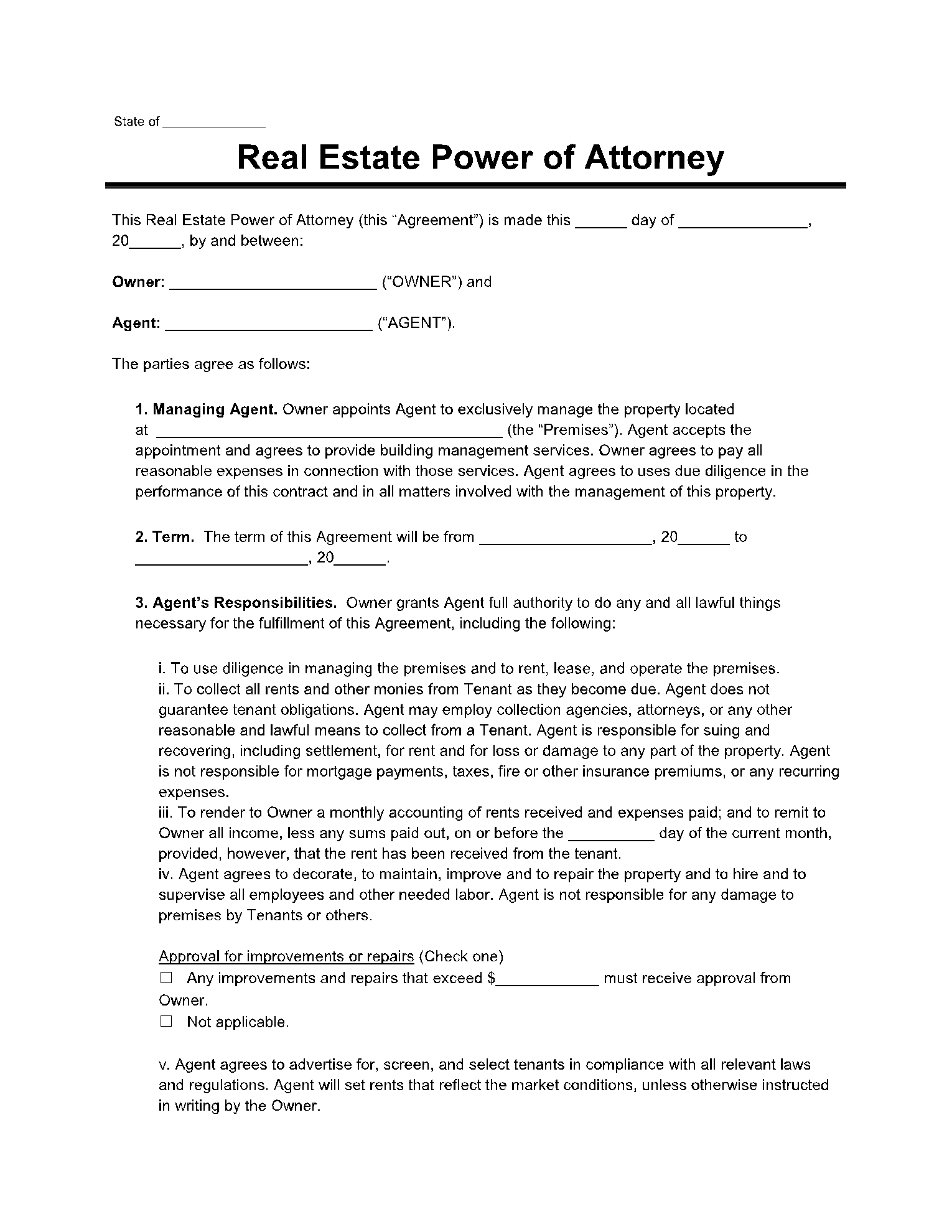Attorney forms of almost all states more or less perform the same functions. Similarly, the power of attorney form ga isn’t much different. These forms authorize an agent to take care of the principal’s health care, monetary inheritance, tax filings, etc. However, it suits better if the trusted individual or agent lives close to the principal. In that way, he or she will be available for the principal in case of need.
What Does Georgia Power of Attorney Forms Mean?
In general terms, power of attorney is a testimony that allows one (principle) to transfer his/her authoritative power to a trusted person (agent). These powers involve controlling financial and business activities, purchasing life insurance, compensating claims, managing business interests, giving gifts, and exercising professional help.
General power of attorney is a useful instrument for those who will be in a remote place and require someone to manage certain matters in their absence. Some people also opt for the POA when they realize that they are not physically or mentally capable of managing their own matters. A power of attorney is usually added in an endowment plan to make sure the assigned agent can control the financial affairs of the principal person.
Types of power of attorney forms Georgia
The principal is free to use the power of attorney form in Georgia to handle his assets and make legal decisions in case he becomes incapacitated. However, depending on the circumstance, there can be various types of a ga power of attorney form.
- A medical power of attorney Georgia
The Georgia power of attorney for medical purposes is also known as the Georgia advance directive for health care. The chief function of this form is to allow the principal to authorize an agent to make healthcare decisions on his behalf. With this ga poa, the agent can select treatment preferences, declare the principal’s living will. Moreover, the agent can also decide whether the principal would require to go through any certain course of treatment or not.
- General power of attorney Georgia
As the name suggests, this power of attorney simply allows the principal to select an agent who can take care of any financial or legal matter for him. This works only within the state. However, the only condition for the general poa Georgia is that it becomes invalid when the principal can no longer think for himself. In that case, a licensed physician can determine the loss of the decisional capacity of the principal.
- Durable Georgia power of attorney form
In terms of handling the principal’s finances, the durable power of attorney Georgia is the most effective. For this purpose, the agent is authorized to make financial decisions on behalf of the principal in case the latter becomes incapacitated. Upon executing this form, the agent can handle stocks and bonds, insurance and annuities, claims and litigation, etc. of the principal. But, note that this document only comes to effect after the principal’s incapacitation.
- Limited power of attorney Georgia form
This document allows the principal to transfer some of his financial powers to the agent. As a result, the agent can only perform the financial activities as specified on this limited poageorgia. Upon completion of the act, the document becomes void. In other words, this form is best suited for special circumstances.
How to get power of attorney in Georgia?
Getting a power of attorney in Georgia is not a big deal. The principal has to discuss the issue with the agent beforehand. After that, both parties will have to fill out the free power of attorney form. Sign in at CocoDoc and get your POA form online right away!
Important Takeaways
The authenticity of power of attorney is valid when the principal is mentally sane at the time of signing. In certain cases, if the principal thinks that their mental capability may be questioned, they can go to a doctor to confirm their sanity in written form. If your power of attorney doesn't define conditions for determining rational competency, your agent will still require a signed doctor's approval of your inability to perform the activities on your behalf. The need of visiting a court may arise in special events.
